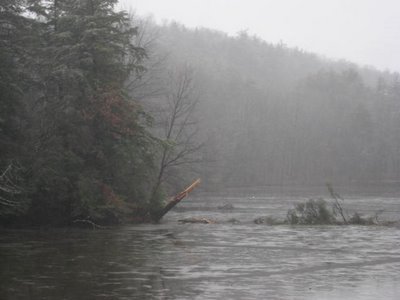Waste coffee grounds offer new source of biodiesel fuel EureakAlert
It’s Bank Failure Friday again Interest Rate Roundup
The Stock Market Still Hopes for a Bailout Jim Surowiecki, New Yorker (hat tip reader Scott)
Big 3 Get Lifeline in Bank Rescue Aid Wall Street Journal. Provides useful detail on where the TARP funds stand and suggests the Administration could tap into a very large chunk of allocated but not actually spent monies.
Rectitude Chic Peggy Noonan, Wall Street Journal. Zeitgeist watch.
Treasury’s Lowest Yields Offer No Help to Companies Bloomberg
German bank bail-out has failed, say MPs Financial Times
Swelling Ranks of Sellers Michael Panzner. Key sentence:
“Potentially, 10% of retailers could face significant restructuring, bankruptcy or liquidation” in 2009, said Colin McGranahan, a retail analyst at Sanford C. Bernstein & Co.
The End of the Washington Consensus Michael Hudson and Jeffrey Sommers (hat tip Jesse)
We have an anti-antidote tonight. Long standing readers may recall we occasionally featured a simply spectacular private lake for sale by a friend (it really is terrific, and now would be a glam way to go the survivalist route, since it has a dam that in times of yore ran a grain mill, the lake has 9 kinds of fish, plus deer and turkey on the surrounding land).
It was called Leaning Pine after an iconic tree that extended over the lake’s surface (you can see it in the third and fifth photo). Sadly, it did not survive an ice storm last night:
Now to our regular fare:




Bloomberg "While rates on everything from four-week Treasury bills to 30-year bonds fall to all-time lows, companies are paying an average 10.8 percent on their debt, up from 6.53 percent in January, according to Merrill Lynch & Co.’s U.S. Corporate & High Yield Master Index. The premium investors demand for lending to companies instead of the government rose to 8.85 percentage points yesterday, compared with 2.96 percentage points at the start of the year, the index shows."
Seems related to me about the previous post about deflation. Treasury interest goes lower and lower, but business borrowing cost goes higher and higher. Wonder why that is?
Because treasury is issuing so many debt instruments that business borrowing is being crowded out.
It’s supply and demand, and the government is once again messing up the market. They need to exit and let the free market do its thing, but I wouldn’t bet on it especially with Obama on the way. Check out gloomboom.com – it will make your day!
Off Topic Question:
I have read accounts by safe companies, stores like Home Depot that sell home safes, etc, that safe sales are up by 50% in some areas of the country.
If 30 million Americans (approx the number that own their homes free and clear) each removed $30,000 from their bank and placed it in their new home safe (or under a mattress), how big would the deflationary impact be on the US economy?
Exactly! Just let free markets do their thing w/o evil government interference, and everything will be just peachy. We all will be rich and happy.
BTW: Who wants to buy my bridge?
rc
AIG's at it again – more "retention bonuses" when will it all end. http://www.bloomberg.com/apps/news?pid=20601087&sid=al7HigWEZYgA&refer=home
Sounds like some jail time might be in order for Mr. Liddy.
Notice that since the early to mid-80's the Dow Jones Industrial Average, Nasdaq, and the S&P 500 may suggest serial correlation. Someone should do some mathematical analysis on this. I'd be interested to hear comments on this. As Ritholtz suggests, we're looking for a nice smooth line, with consistent almost unbelievable gains. From the 80s on, if you throw out the bubbles in each of these graphs, it looks very much like a nice pretty line extending to the sky. Year on year growth, as any financial adviser at any mutual fund or retirement investing firm will say, can be expected to be in the 10% range over the long haul – because the stock market always goes up.
An interesting note: the invention of the 401(k) in 1978 and almost half of U.S. corporations offering them by around 1983 correlates to the beginning of the last roughly 30 years of increases in the DJI. The universalization of 401(k)'s is today easily apparent.
Are all the U.S. workers contributing to 401(k)s and IRAs just a part of one big Ponzi Scheme?
Yves, thanks for listing Jessee’s posting by Hudson and Sommers and thanks to Jessee for posting it.
I also believe that we are at the end of an era. The worst thing that could happen to the US did happen. The CCCP collapsed. While the CCCP was still the enemy du jour the US had an opponent to lean against. Everything that the US did was justified by ‘fighting the evils of communisim’.
The Viet Nam debacle was carried out to ‘stop the spread of communisim’. After we left Nam communisim did not spread any more than it would have had we not gone there. I believe that the era that is ending is not just an economic revolution but an end to various strategic inativities that were put in place way back when McKinder proposed his principal, prior to WW1. An enormous sea change, iow.
Now the US has military installations in approx 170 countries, ostensibly to stop the spread of terrorisim, at an enormous cost to taxpayers (actually, our creditors).
The entire stategic posture of the US needs to be reconsidered. What we are attempting is not economically sustainable. Guns or butter, pick one.